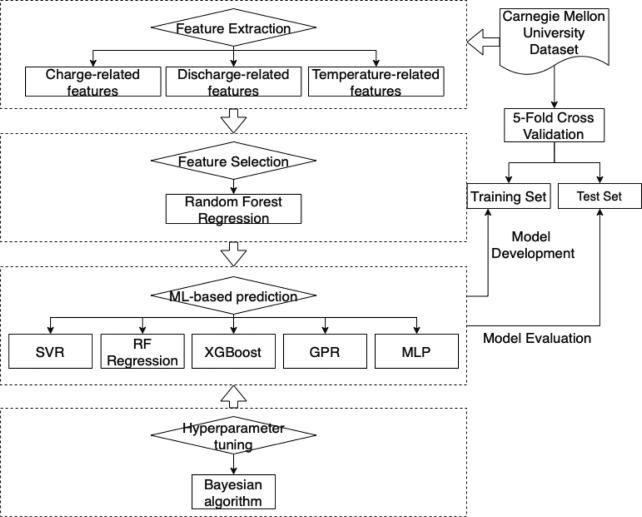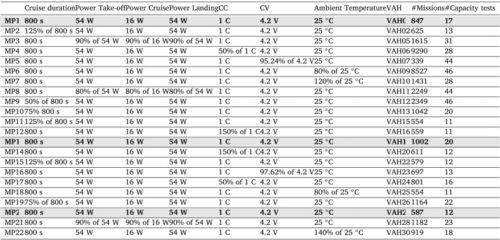Teaching eVTOL Batteries to Teach Themselves to Self-Diagnose

The lithium-ion batteries at the heart of the eVTOL revolution will be tasked with performance gymnastics unlike those asked of any electric-powered vehicles in history. Start. Stop. Take off. Fly. Land. And then . . . do it again. And again. The batteries will discharge power and need to be recharged dozens of times a day when operating as air taxis – often in disparate and rapidly changing weather conditions.
To be able to posit ways to predict a battery’s state-of-health and remaining useful lifetime will be essential to the entire eVTOL value chain – from manufacturers to commercial operators and the people and cargo depending on them for safe, reliable flight. Using machine-learning algorithms, Dutch researchers believe they’ve come up with a method to do just that.
Lead author Utrecht University Assistant Professor Mihaela Mitici and her colleagues, Vanderlande Project Manager Birgitte Hennink; Department of Control and Simulation, Faculty of Aerospace Engineering, Delft University of Technology Associate Professor Marilena Pavel; and Delft University Assistant Professor Jianning Dong, will have their study, “Prognostics for Lithium-ion batteries for electric Vertical Take-off and Landing aircraft using data-driven machine learning,” published in the July 2023 issue of Energy and AI.
Battery Health – Maybe the Most Important Flight Factor for eVTOLs
The scientists looked at three key aspects of the batteries to assess their health: charging, discharging, and temperature (the weather conditions in which the eVTOLs will operate). Among these factors, the study concludes that the discharge-related features are the most critical to understand.

Delft University scientists used this chart to illustrate various eVTOL operations and the conditions under which the aircraft will operate to study and project battery health. [Image copyright and courtesy Delft University]
The scientists considered five machine learning algorithms but found that using Random Forest regression and Extreme Gradient Boosting machine learning algorithms were the most accurate for their study. Using these machine learning algorithms, the Delft University scientists were able to accurately determine a battery’s state-of-health and reliably estimate its remaining life.
Applying the conclusions the data revealed in study, “Prognostics for Lithium-ion batteries for electric Vertical Take-off and Landing aircraft using data-driven machine learning,” battery manufacturers and eVTOL operators may now be able to assess the health of their battery fleets and plan and adjust their daily operations for optimal safety and profitability. That knowledge is electrifying.
#eVTOLs, #UAM, #AAM
Subscribe to AeroCar Journal today, (it’s free for a limited time). Follow us on Facebook, Twitter, and LinkedIn. Visit the Vertical Flight Society for the most comprehensive directory of eVTOL aircraft directory.


